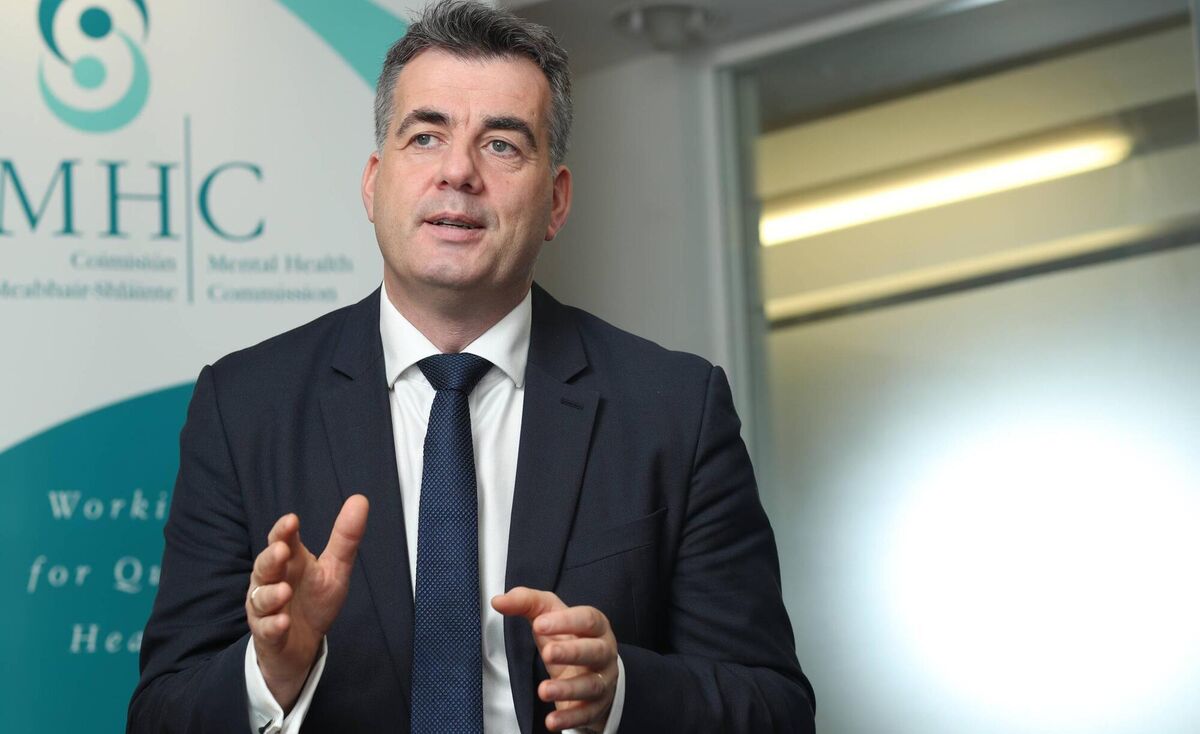Mixed reaction to plans for mental health crisis teams

A person with a mental health issue should only be detained in a garda station 'as a last resort', says solicitor Anthony Fay, who welcomed the announcement of the CIT pilot scheme. Stock photo
Government plans to pilot a special intervention team for mental health crises has generally been welcomed by agencies and groups working in the area.
But a key body — the Psychiatric Nurses Association (PNA) — said the proposal “falls short” of the community crisis mental health teams recommended in various health strategies.
It follows the announcement last week by the Government that a crisis intervention team (CIT) would be piloted in Limerick City as early as April next year.
It said the team would provide a “round-the-clock response” and would be a “collaboration between An Garda Síochána and mental health professionals to provide a rapid and integrated response to persons with mental health issues”.
In September 2018, the Commission on the Future of Policing in Ireland recommended CITs be set up in every garda division.
As well as police and mental health professionals, the commission said the teams should also have substance abuse professionals, child services, and other social workers. It is not clear if the pilot will include these.
The commission said calls for CITs were made by the Mental Health Commission and the gardaí in a report in 2009.

Responding, Mental Health Commission chief executive John Farrelly said: “We welcome the commencement of a project that seeks to implement divisional crisis intervention teams, which will involve collaboration between An Garda Síochána and mental health professionals to provide a rapid and integrated response to persons with mental health issues.”
Fiona Coyle, chief executive of Mental Health Reform, said they "very much welcomed" the pilot.
“Following the Limerick pilot, we hope to see crisis intervention teams established across the country," she said.
"This would help to improve outcomes for people with mental health challenges and promote stronger engagement between An Garda Síochána and mental health services."
The Psychiatric Nurses Association said: “While the PNA welcomes the ‘crisis intervention’ initiative/proposal, it falls short of the recommendations in both the Vision for Change [2006] and the Sharing the Vision [2020] Government mental health strategies for the establishment of 24/7 community crisis mental health teams throughout the country.”
In a statement, the PNA said the initiative in Limerick seemed to involve just one individual mental health nurse as part of a team involving gardaí and other professionals:
"The 24/7 community crisis team concept is well established in mental health services in other jurisdictions such as Canada and Australia and PNA has been calling for the establishment of such teams for many years. To date, not one has been established in the country.”
The statement added: “There has been no engagement/consultation with PNA on the Limerick-based proposal despite PNA being the largest professional practice stakeholder in mental health services.”
Solicitor Anthony Fay welcomed the announcement of the CIT pilot: “This multidisciplinary approach of policing done alongside mental health experts follows international practice such as the street triage teams operating in England and the Memphis policing model in the United States."
He called for “more ambitious" reforms in the area, including changing the law to state that a person with a mental health issue should only be detained in a police station “as a last resort”.
Mr Farrelly, the CEO of the Mental Health Commission, also called for wider reforms, including that only authorised health officers, and not gardaí, should have the power to involuntary detain a person with a mental illness.





